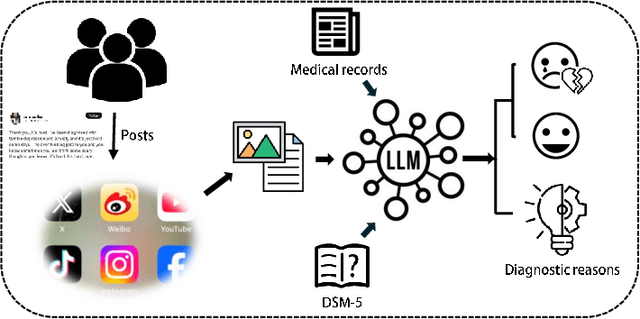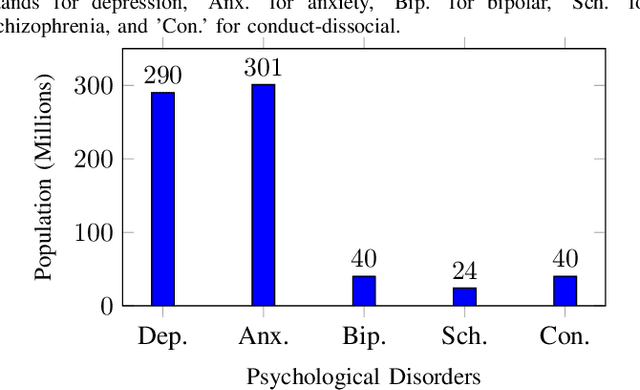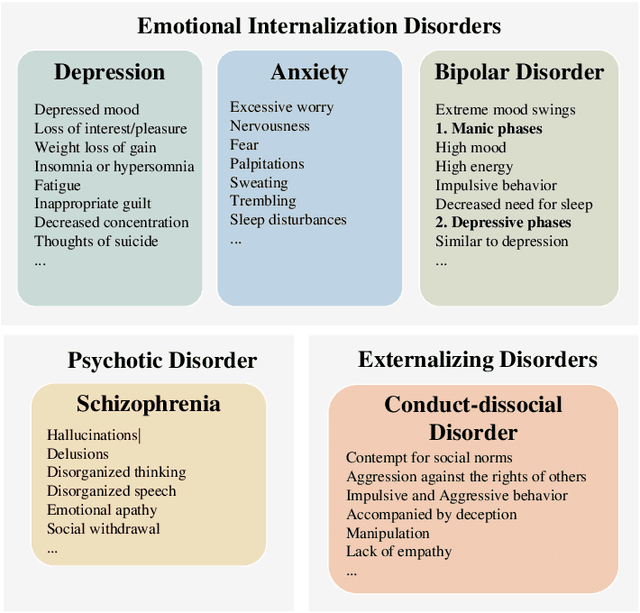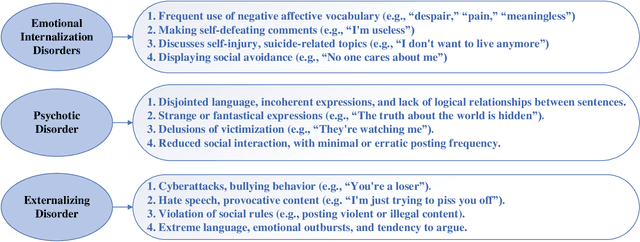Nicole Hu
The Chinese University of Hong Kong
A Survey of Large Language Models in Mental Health Disorder Detection on Social Media
Apr 03, 2025



Abstract:The detection and intervention of mental health issues represent a critical global research focus, and social media data has been recognized as an important resource for mental health research. However, how to utilize Large Language Models (LLMs) for mental health problem detection on social media poses significant challenges. Hence, this paper aims to explore the potential of LLM applications in social media data analysis, focusing not only on the most common psychological disorders such as depression and anxiety but also incorporating psychotic disorders and externalizing disorders, summarizing the application methods of LLM from different dimensions, such as text data analysis and detection of mental disorders, and revealing the major challenges and shortcomings of current research. In addition, the paper provides an overview of popular datasets, and evaluation metrics. The survey in this paper provides a comprehensive frame of reference for researchers in the field of mental health, while demonstrating the great potential of LLMs in mental health detection to facilitate the further application of LLMs in future mental health interventions.
A Survey on Large Language Model Acceleration based on KV Cache Management
Dec 27, 2024Abstract:Large Language Models (LLMs) have revolutionized a wide range of domains such as natural language processing, computer vision, and multi-modal tasks due to their ability to comprehend context and perform logical reasoning. However, the computational and memory demands of LLMs, particularly during inference, pose significant challenges when scaling them to real-world, long-context, and real-time applications. Key-Value (KV) cache management has emerged as a critical optimization technique for accelerating LLM inference by reducing redundant computations and improving memory utilization. This survey provides a comprehensive overview of KV cache management strategies for LLM acceleration, categorizing them into token-level, model-level, and system-level optimizations. Token-level strategies include KV cache selection, budget allocation, merging, quantization, and low-rank decomposition, while model-level optimizations focus on architectural innovations and attention mechanisms to enhance KV reuse. System-level approaches address memory management, scheduling, and hardware-aware designs to improve efficiency across diverse computing environments. Additionally, the survey provides an overview of both text and multimodal datasets and benchmarks used to evaluate these strategies. By presenting detailed taxonomies and comparative analyses, this work aims to offer useful insights for researchers and practitioners to support the development of efficient and scalable KV cache management techniques, contributing to the practical deployment of LLMs in real-world applications. The curated paper list for KV cache management is in: \href{https://github.com/TreeAI-Lab/Awesome-KV-Cache-Management}{https://github.com/TreeAI-Lab/Awesome-KV-Cache-Management}.
 Add to Chrome
Add to Chrome Add to Firefox
Add to Firefox Add to Edge
Add to Edge